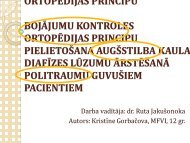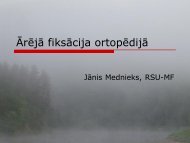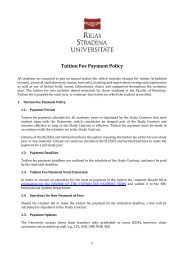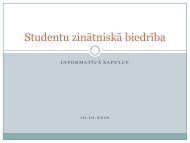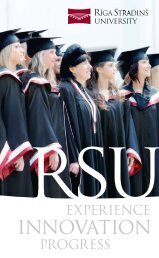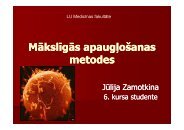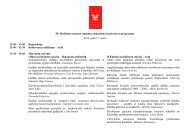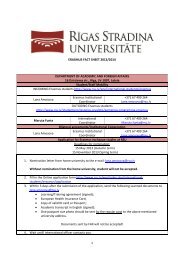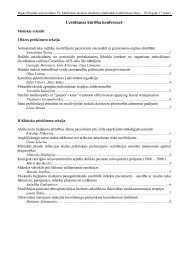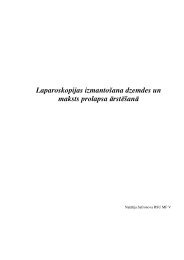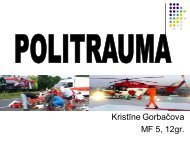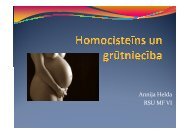History of Latvia: a Brief Survey
History of Latvia: a Brief Survey
History of Latvia: a Brief Survey
- No tags were found...
You also want an ePaper? Increase the reach of your titles
YUMPU automatically turns print PDFs into web optimized ePapers that Google loves.
Moscow issued orders for the construction <strong>of</strong> large-scale industrial plantsin <strong>Latvia</strong>. Manufacturing in the chemical and electronics industries waswidely developed. The necessary labour force for these enterprises wasimported from Russia. Many factories manufactured material for theneeds <strong>of</strong> Russia’s armed forces.During the 1980s the inability <strong>of</strong> the Soviet planned economy tocompete with the free market economy <strong>of</strong> the democratic worldbecame progressively apparent. Thus, increasingly larger circles <strong>of</strong> thesocial and political elite agreed that it was necessary to convert to aWestern-style economy.Opposition to the occupation regime persisted throughout the entirepost-war occupation period. There existed various outlawed groups <strong>of</strong> people who heldsimilar views, read prohibited anti-communist literature, disseminated tracts and displayedthe forbidden red-white-red <strong>Latvia</strong>n national flag.<strong>Latvia</strong>n culture became a form <strong>of</strong> collective opposition. Cultureand intellectuals in <strong>Latvia</strong> were apportioned unprecedentedsignificance during the era <strong>of</strong> Soviet occupation. Officialnational <strong>of</strong>fices were founded — creative unions — whichwere responsible for <strong>Latvia</strong>n cultural issues. During the time <strong>of</strong>occupation, <strong>Latvia</strong>n cultural traditions manifested themselvesmost strongly in the tradition <strong>of</strong> the Song Festival, whichallowed people to feel a sense <strong>of</strong> national unity and identity.However, this tradition was also subjected to Soviet ideology.An enormous strategic surveillanceradio telescope that was built for theneeds <strong>of</strong> the Soviet occupation armyin Irbene (near Ventspils). Followingthe renewal <strong>of</strong> <strong>Latvia</strong>’s independence,the radio telescope was donated to<strong>Latvia</strong>n science for the detection <strong>of</strong> radi<strong>of</strong>requencies in distant galaxies.Propaganda poster <strong>of</strong> soviet armed forces. Text in Russian:'Long live the armed forces <strong>of</strong> the Soviet Union!'.The Soviet era in <strong>Latvia</strong>. The annual Soviet military powerdemonstration in Rīga (held 1945-90). Soviet forces left<strong>Latvia</strong> on 31 August 1994.During the Soviet occupationschoolchildren were submitted toideological training. Most students weremade to join the ‘Pioneer’ movement,which was identifiable by red kerchiefsand school uniforms.41



